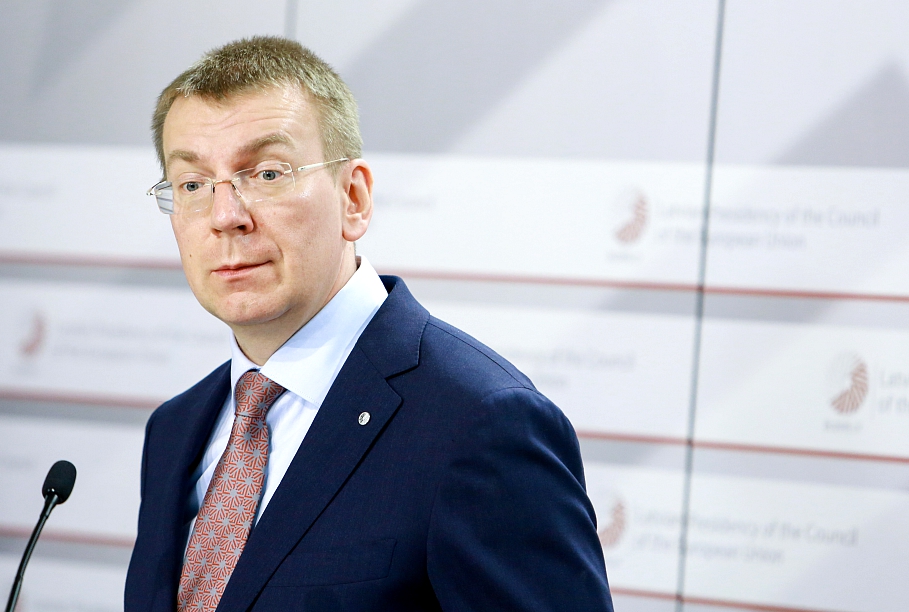Lithuania and Estonia as well as the Visegrad Group countries, which previously objected to admission of additional numbers, have now agreed to accept more refugees which means that the EU can politically and legally take its decisions on distribution of refugees regardless of Latvia’s objections.
Rinkevics also tweeted the warning that Latvia "may end up in complete isolation both in the context of the EU and NATO and among like-minded countries."
Latvija var nonākt pilnīgā izolācijā gan ES un NATO, gan Baltijas & līdzīgi domājošo valstu sadarbības kontekstā #drošība #bēgļi #koalīcija
— Edgars Rinkēvičs (@edgarsrinkevics) September 10, 2015
This might lead to a situation when Latvia will have to accept more refugees anyway but its capacity to fight for its interests, be it aid to tackle the spread of African swine fever or security matters, would be limited in the future, the foreign minister warned, noting that, for example, participation in the NATO Baltic air policing mission was voluntary.
"Given the situation to the east [from Latvia], ending up in political and security isolation is absolutely contradictory to Latvia’s interests. I hope very much that common sense would prevail at the meetings of the ruling coalition parties and the parliamentary committee on European affairs tomorrow,” he said.
To follow populist inclinations on the subject of refugees will endanger the national interests in a short, medium and long term, Rinkevics said.
Latvia now has to work with maximum speed to get ready to accept 250 people and, probably a large number of refugees, he said.
The most recent European Commission plan calls for Latvia to accept 776 refugees.
The foreign minister pointed out that, when presenting his proposals for a refugee relocation scheme, European Commission President Jean Claude Juncker had implied that this scheme would apply also in case of a potential deterioration of the situation in Ukraine when Latvia might get flooded with refugees from Ukraine. If Latvia did not help other EU member states with refugees now, it could not expect help from them in the future.
”Considering that the proposed EU scheme is not a permanent arrangement but a solution to the emergency situation, we should take a responsible approach to the problem and understand that we do not live on an isolated island floating somewhere in space and cannot ignore everybody else,” Rinkevics said.
Latvia’s ruling Unity party has called an extraordinary meeting of the Latvian ruling coalition parties on Friday morning over the negative attitude of the other two ruling parties to the possibility of accepting more refugees under the new EU refugee relocation scheme.
The Unity representatives pointed out that avoiding solidarity and refusing to help with solving the EU refugee crisis might have dramatic consequences for the national economy and security in Latvia. Among other things, the aircraft currently patrolling Latvia’s air space as part of the NATO Baltic air policing mission might be withdrawn as Hungary, one of the countries contributing to the air patrols at the given moment, is also one of the EU member states flooded with refugees.
Germany, which has already taken in thousands of refugees, is the other country currently patrolling Baltic skies.
However, agreement among the three parties in government seems a distant prospect at the moment. There is dissent about accepting refugees from within both Unity and the Greens and Farmers' Alliance, while the third grouping in government, the National Alliance, is implacably opposed to the idea.
Ivars Ijabs, a political expert at the University of Latvia told Latvian Radio on Thursday that the refugee debate would generate "a lot of noise and aggression" with parties taking a short-term view to exploit the unpopularity of accepting refugees in order to boost their ratings.
"Unfortunately, this is a very unpleasant thing to do, because we are dependent on our Western partners," said Ijabs.





























